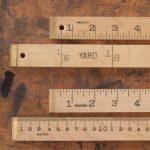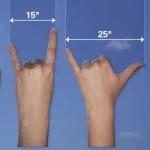Storage Unit Size Chart – Guide To Comparing Spaces
Storage units exist in various sizes to fulfill your storage needs, whether you need extra space at home, a place to store company paperwork, or to de-clutter your house. Storage Unit size goes from 25 ft² up to 300 sq feet.
The monthly price of renting a storage unit may be more than $200 and is usually determined by the size of the rented space. As a result, it is critical to calculate the size you will require before hiring a unit. A storage unit size chart can assist you in determining the precise or approximate storage space you need.
Storage Unit Size Guide
| Size Unit (ft, m) | Square footage/ Square meter (sqft, m2) | Cubit foot (Footage)/ Cubic meter (cuft, m3) | Perfect Storage size for |
| 5’ x 5’ 1.5m x 1.5m | 25sqft 2.3m2 | 175cuft 5m3 | Personal luggage Office file boxes |
| 5’ x 10’ 1.5m x 3m | 50sqft 4.6m2 | 350cuft 10m3 | A walk-in closet A studio apartment |
| 10′ x 10′ 3m x 3m | 100sqft 9.3m2 | 700 20m3 | One bedroom apartment A small 2-bedroom apartment |
| 10′ x 15′ 3m x 4.5m | 150sqft 14m2 | 1050cuft 30m3 | A big two-bedroom appartment A 1-bedroom house |
| 10′ x 20′ 3m x 6m | 200sqft 18m2 | 1400 40m3 | An average home with about 2 bedrooms |
| 10′ x 30′ 3m x 9m | 300sqft 27m2 | 2100 60m3 | Part of a large multi-room home |
How to Estimate the storage unit size you need
How do I know the required storage dimensions?
Step 1: Make a list of everything you own or everything you intend to store
The first step in deciding the quantity of storage unit you require is determining how much you possess or intend to move. Pinpoint larger objects such as sofas, desks, and bookcases and count every one of your boxes/cartons. Make a note of everything.
Suppose you wish to store the contents of a little bedroom, for instance. In that case, your inventory would most certainly comprise items like a bed and mattress, a refrigerator, a chair a bookcase, a dresser or other furniture.
Step 2: Examine your storage options at home
After cataloguing every area, double-check that you have utilized all of your home’s storage space. The last thing you want is to commit to a storage unit only to discover that you could have saved money by storing some of your belongings in a partially empty closet or an unused section of your garage.
It is essential to double-check your options as the annual cost difference between a large and micro storage unit may be up to $800.
Step 3: Estimate your space requirement
Using the storage unit size chart above, estimate the space required to store your items. You’ll want to have the estimated space requirements in square feet or cubic feet as those measurements will determine what storage unit size will be rented out to you.
Step 4: Choose the most appropriate size storage unit for you
After taking all of your measurements, decide whether you need a small, medium, or large unit. The simplest method is to put your stuff in a pile and measure the pile’s length, width, and height, adding 1.5m to each measurement.
Comparing your dimensions to the table above can help you determine the best size for you.
Step 5: Do some Research
The next step is to conduct some research into storage facilities; once you have decided on whether you want a small, medium, or large storage space, you’ll need to obtain precise measurements from storage facilities. It would help if you also looked into as many storage facilities as possible to see who offers the best rate. In addition, to save money, make sure the storage unit you choose is large enough to store your belongings but not so large that there is a lot of unused space.
Types of Storage Units
There are various storage units, and selecting one to rent is mainly determined by the objects you wish to store. This section will serve as a guide to the different types of storage units available, so you can completely comprehend your options. The two major types of storage units are:
- Indoor Storage
- Outdoor Storage
Indoor Storage
Indoor storage units are found at a storage industry that is usually only accessible to authorized clients. A modern indoor storage facility would include large elevators and complimentary convenience carriages to enable moving your belongings in and out of the storage locker as seamless as possible.
Indoor storage facilities are better for storing miniature goods, expensive storage, or anything that requires temperature control because they are more secure against theft and temperature-related harm.
Outdoor storage
Outdoor storage units are the most common of all storage unit kinds. One of the main reasons for this is the ease of access to the facility since most owners can drive up to the storage unit and load and unload their belongings.
As a result, it is an outdoor space perfect for keeping larger items that are not temperature-sensitive such as household furniture items like a dining table set or bedroom furniture. It can also be used to store seasonal items such as seasonal decorations. Owners with drive-up access have convenient access to their belongings and can add or remove goods from the unit at any time.
Other storage units include vehicle storage units, wine storage units, and climate-controlled storage units. Vehicle storage units are often used to store recreational vehicles, boats, motorcycles, a U-pack trailer, commercial trailer, rental trucks and other vehicles.
Conclusion
Was this article about the storage unit size chart helpful to you? Remember that before hiring a storage container, you should correctly measure and estimate the expanse of your belongings to save money. There are also several types of storage units available, and the one to choose is determined by the objects to be stored.
We love to hear from you, so please leave a comment in the section below; we will reply as soon as possible. Also, don’t forget to share the article with others.
Picture in this post by Darrin Moore on Unsplash
Related House Topics:
- Barbie Doll Size : What are different sizes of Barbie ?
- Blanket sizes chart : blanket sizes and dimensions in inches & cm
- Tablecloth size chart – What are standard tablecloth sizes ?
- How Many Meters Are In A Yard?
- How Many Centimeters are 8 Inches?
- Knife Sizes and Different Types
- 4 Inches is How Many Centimeters?
- Light Bulb Base Sizes : What size light bulb base do I need?
- Tesalate Towel Size Guide
- Light bulb Size : What are the different and standard bulb sizes?
- Duvet Sizes: What is a Standard-Size Duvet?
- Single Car Garage Size and Dimensions
- How High Is A Story?
- How Much Does 1 Cup Of Rice Weigh?
- Cast Iron Skillet Sizes: What Size Do I Need?
- Dollar Bills Size Chart
- Pizza Sizes: Which One to Order?
- How To Measure A Foot Without A Ruler



















This is a great storage unit size chart! It’s really helpful in comparing spaces and figuring out what will work best for your needs. Thanks for putting this together!